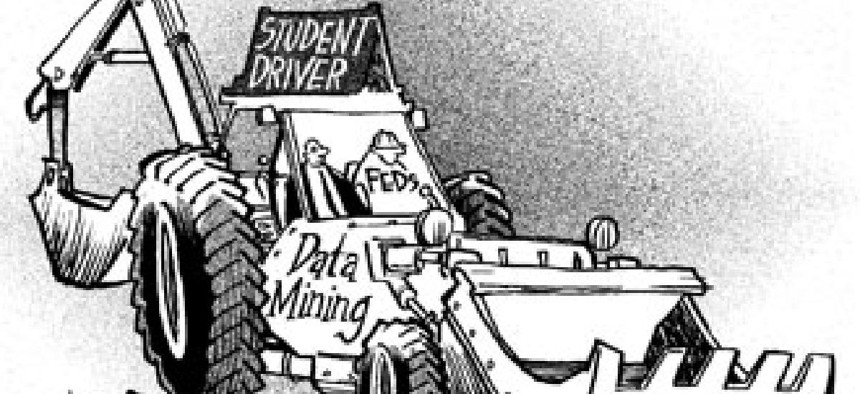Editorial: Maintaining control

After years of being just talk, data mining is in vogue.
After years of being just talk, data mining is in vogue. After years of collecting data, technologies are in place that allow agencies to find a needle in a haystack.
In 2003, the Defense Advanced Research Projects Agency launched the ominous sounding Total Information Awareness program — later renamed Terrorism Information Awareness (TIA). That program sought to scour databases run by airlines, financial institutions and schools for trends that might offer leads on potential terrorists. But DARPA eventually killed that program.
Now most agencies — in fact, most organizations — are looking to use data mining. Perhaps the best-known case is the National Security Agency, which is collecting phone numbers to find trends that can help in the war on terrorism.
Data-mining technology is so tantalizing. The idea that disparate data pieces can somehow yield useable conclusions seems too good to be true.
We have no doubt that there are good reasons to collect this data, but people also have good reasons to feel uncomfortable. Data-mining stories mix with the tales of the Department of Veterans Affairs losing the data of millions of people and a hacker infiltrating Energy Department records. Those incidents are instructive. If you collect the data, you are responsible for it.
Years ago, former Sun Microsystems chief executive officer Scott McNealy said, “You already have zero privacy. Get over it.” But that should not be the basis of sound public policy.
Data-mining technology can be powerful. But regarding what happened with TIA, that power can be frightening. Processes, procedures and guidelines should be in place to guide the use of this technology so that it can be effective without scaring people.
Off-topic: Just a reminder that nominations for Federal Computer Week’s new Rising Star awards program are being accepted through Friday, July 7. The Rising Star awards, which are being selected in conjunction with AFCEA International Bethesda, Md., chapter’s Young AFCEANS, are modeled on the Federal 100 awards. These are young people who have made a difference in the past year. Unlike the Federal 100 awards, the Rising Star awards recognize people we loosely categorize as being in the first third of their careers.
Find more information at www.fcw.com/risingstar.

NEXT STORY: SBA seeks to help women earn contracts


